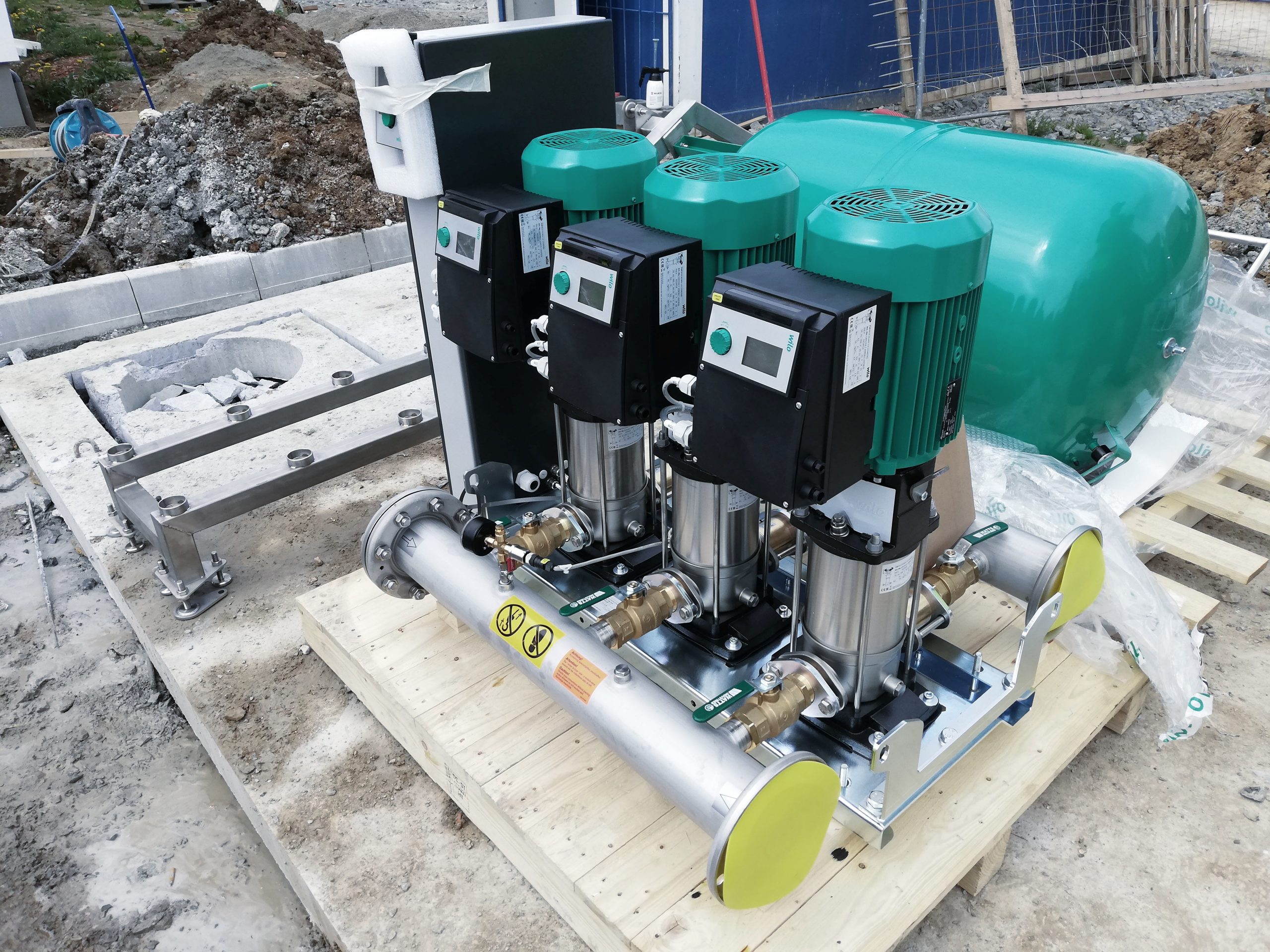A pressure station
A pressure station is a device used to control and maintain a constant pressure in a system, most often a water or hydraulic system. These stations are often used to ensure a consistent flow of liquid such as water, oil or other fluids in a variety of applications.

Definition of pressure stations:
A pressure station is a device that regulates the pressure of the liquid in the system to a certain value. It consists of pumps, pressure sensors, control elements and liquid storage tanks. A pressure station can be designed to maintain system pressure within a certain range, allowing for consistent flow and minimizing pressure fluctuations.
Distribution of pressure stations:
Pressure stations can be divided in different ways according to their specific applications and the components used. The two main categories are:
Domestic pressure stations:
Domestic pumps: In the domestic environment, pressure stations are used to ensure the supply of water from the water supply system to households. These stations ensure sufficient water pressure for faucets, showers and other appliances.
Hydrophore tanks: Home pressure stations can include hydrophore tanks that store water under pressure. This minimizes short and frequent pump starts.
Industrial pressure stations:
Industrial Pumps: In an industrial environment, pressure stations are used to pump a variety of liquids in a variety of applications, including cooling systems, manufacturing processes, and the like.
Hydraulic systems: In hydraulic systems, pressure stations are used to control the pressure in oil or other hydraulic systems that drive machinery and equipment.
Overall, pressure stations ensure a stable and consistent flow of liquid in various applications. Their specific design and components may vary depending on the type and size of system in which they are used.
